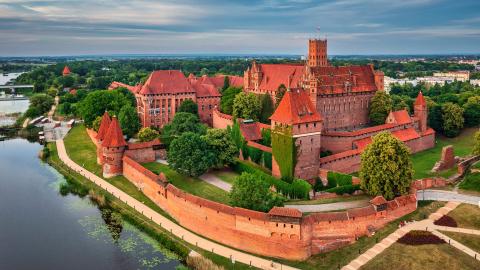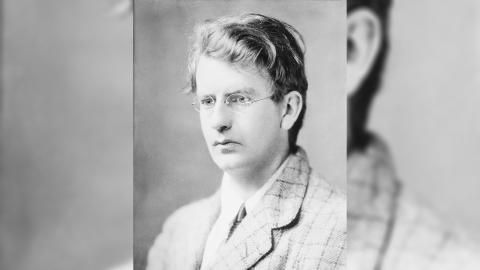The 9 shortest-serving UK Prime Ministers in modern history
The Conservatives lost approximately two-thirds of their seats in the 2024 General Election and handed Labour a record-breaking landslide victory. Rishi Sunak's tenure as Prime Minister lasted less than two years.
The role of the Prime Minister isn’t always the gift it seems to be. While some dream of the position from childhood, others take up the reins simply to avoid letting the side down. Only two Prime Ministers have remained in power for more than a decade in the last half-century, with both Tony Blair and Margaret Thatcher cutting quite controversial paths throughout their careers.
But what about the other side? Those PMs at the opposite end of the spectrum whose time at the top wasn’t illustrious or nearly as extensive?
Let’s take a closer look at nine unfortunate leaders from modern history whose names entered the record books for all the wrong reasons.
1. Liz Truss - 44 days

Liz Truss is the shortest-serving Prime Minister in British history, a title previously claimed by George Canning, who died in 1827 after five months in office. Truss was selected as Conservative Party leader in September 2022, after a six-week leadership contest, that was brought about by the resignation of Boris Johnson, another PM who didn't serve out their full term.
The start of Truss' tenure was overshadowed by the death of Queen Elizabeth II and the period of national mourning that followed. Truss' low tax/ high-growth policies helped her win the Conservative Party leadership contest, but spooked the market and precipitated a financial crisis.
Forced to sack her Chancellor, Kwasi Kwarteng, and abandon the policies that he announced at the disastrous mini-budget, Truss' credibility lay in tatters. With her authority dwindling, she resigned as party leader on 20th October 2022 following mounting pressure from her fellow Conservative MPs to stand down.
2. Sir Alec Douglas-Home – 1 year, 1 day

Just scraping it past his one-year anniversary, Sir Alec Douglas-Home became Prime Minister in October 1963 after Harold Macmillan resigned during a Conservative Party crisis. Old-fashioned and out of touch, Douglas-Home narrowly lost the 1964 election to the avuncular, pipe-smoking Harold Wilson.
His premiership was fairly unremarkable, with his aristocratic background seeing him pitted against the trade unions, but nothing much else of note. He was crafty enough to foil his own kidnap attempt in 1964, as two left-wing students attempted to abduct him but were easily plied with wit (and a few beers).
3. Rishi Sunak - 1 years, 254 days

After taking over from Liz Truss, the shortest-serving Prime Minister in British history, in October 2022, Rishi Sunak was always going to have a difficult job on his hands. An unstable economy and a divided party were just two issues he had to tackle, but it was a series of controversial policies, including the plan to send unauthorised immigrants to Rwanda, that really sealed his fate.
Following the 2024 General Election, which Sunak announced in the pouring rain without an umbrella, the Conservatives lost approximately two-thirds of their seats and handed Labour a record-breaking landslide victory.
4. Sir Anthony Eden – 1 year, 279 days

After taking control of the Conservative government in the 1950s, it was the Suez Crisis that led to Sir Anthony Eden’s position becoming untenable. Despite stating ill health as the grounds for his departure, many believed his exit was down to his apparent misleading of Parliament over his collusion with France and Israel.
5. Gordon Brown – 2 years, 318 days

The British public is never a big fan of unelected leaders, so when former Chancellor of the Exchequer Gordon Brown took over from Tony Blair, opinion polls did not paint a happy picture. Brown had the unfortunate job of chartering the country through the financial crisis and was defeated by David Cameron at the 2010 General Election.
6. Neville Chamberlain – 2 years, 348 days

The naivety of Neville Chamberlain has remained one of the main memories we all have of him. Returning from peace talks with Adolf Hitler, Chamberlain declared, 'I believe it is peace for our time' in September 1938. He couldn’t have been more wrong and didn’t last much longer in the top job after the outbreak of the Second World War.
7. Theresa May – 3 years, 11 days

If there was ever a case of the poison chalice, May is an example. Better known as a ’Dancing Queen’ than a high-performing PM, Theresa May took office in 2016, as David Cameron jumped ship after the Brexit referendum.
A near-impossible task, May took hold of the government at a highly contentious time. Her Brexit deal was repeatedly defeated in Parliament, and this meant, by June 2019, her resignation was tendered too, managing just a smidge over three years in her dream job.
8. Jim Callaghan – 3 years, 29 days

Jim Callaghan was the victim of the political machine led by Margaret Thatcher. He was Labour’s fourth Prime Minister but no match for her popularity and drive. Callaghan had to contend with record unemployment rates and huge levels of discontent, making it an easy win for his opponent when she came to power in 1979.
9. Boris Johnson – 3 years, 44 days

Boris Johnson's career as Prime Minister had not been without controversy. Trying to steer the UK through a global pandemic and the backend of the Brexit deals, Johnson’s bombastic attitude made him a figure of both adulation and contempt. The divisive nature of his character meant his premiership was often in question, even within his own party.
With his government collapsing under self-inflicted scandals, a succession of devastating ministerial resignations dealt Johnson's premiership a fatal body blow. On 7th July 2022, after two days of high political drama, Boris Johnson resigned as Conservative leader. He continued to serve as Prime Minister, during the summer of 2022 while the Conservatives ran a leadership contest to find his successor.
In conclusion
Many of our shortest reigning PMs have had good reason for the difficulties they’ve faced. Choosing to take control amidst crises or handling some of the biggest historical moments of the last century takes guts, but will inevitably lead to criticism. However, a short tenure doesn’t necessarily mean one without incident, and some of these PMs will be remembered more for the events that surrounded them than their actions in office.
Did you know?
The UK's longest-serving Prime Minister was Sir Robert Walpole who served 20 years, 314 days.














